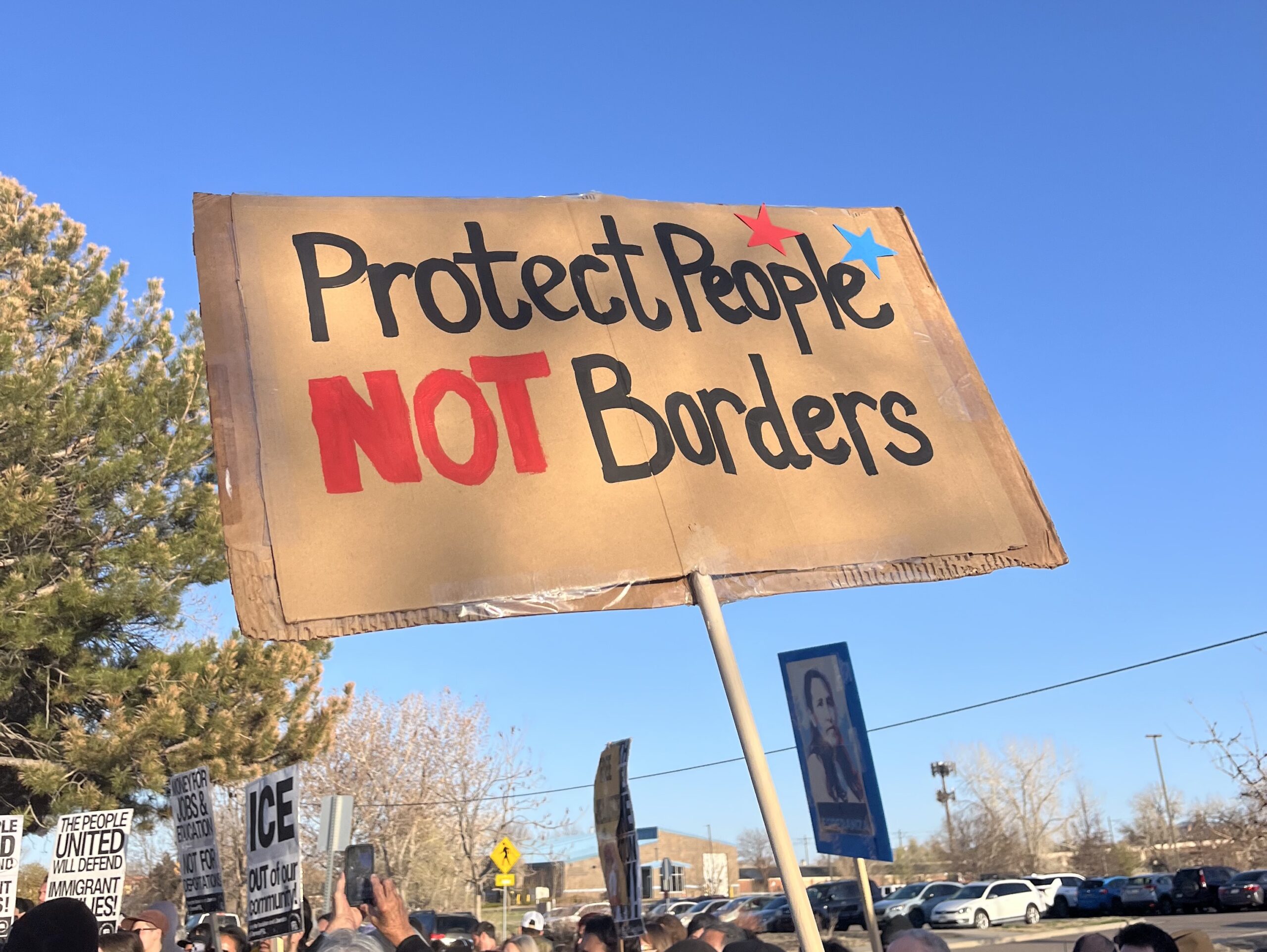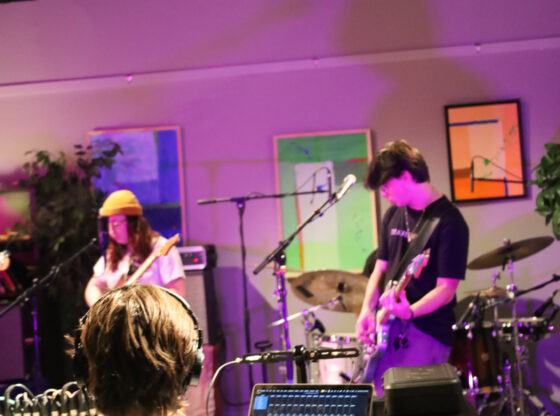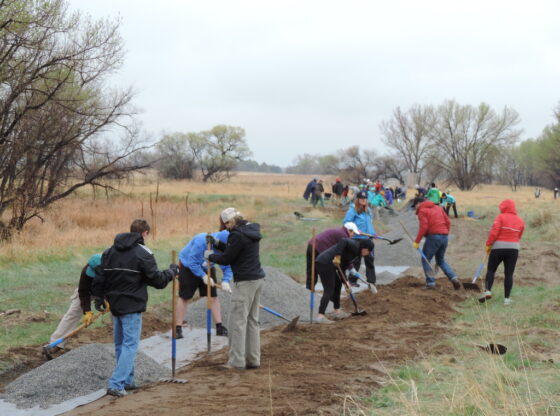Editor’s Note: Readers should be aware that this article has content pertaining to sexual assault. If you identify as a survivor of gender-based violence and want to reach out for support, visit du.edu/CAPE for confidential resources and contact information.
When the team behind the Instagram @wecanDUbetter went public with the account, they could not have expected it to gain 1,000 followers overnight.
They did not predict they would receive over 100 stories of gender violence and sexual assault from students in two week’s time. They did not know the scope of their issue would put concerned parents and alumni as well as threats in their DMs. They did not realize that the morning after the account went live—in friend groups, classes and other campus spaces—they would sit and listen as people spoke about what they had started and its implications.
wecanDUbetter is a movement that aims to stop gender violence on campus by amplifying the stories of survivors. People can fill out an anonymous form to share their experiences, and the Instagram posts several every day.
“[The response we’ve gotten] really shows that people care. The movement is bringing awareness to the issue, and it has some serious momentum. But [this response] also shows a lot about DU and the culture here. If DU didn’t have a problem, a page like this would not have blown up that quickly. It would not have to exist,” one of the creators said.
The account was only recently created—its first post made on Jan. 12. But gender violence has been a pervasive, albeit largely invisible, issue on campus.
In the Health and Counseling Center’s presentation of DU’s Campus Climate Survey to the undergraduate student government, it was reported that 68 percent of people in Greek life either themselves identify as a survivor or someone they care about identifies as a survivor. 51 percent of all undergraduates say the same.
Neither of these statistics can be found on the document accessible to the student body, as the school chooses not to publish all of the information the survey collects and undergraduate and graduate numbers are often lumped together. But, despite how they try to mask it, gender-based violence worsens every year, and it has created an environment where women, people of color and LGBTQ+ individuals feel unsafe on campus. 1 in 3 students believe sexual harassment or sexual violence is a problem at DU.
“If I didn’t have a solid group, I wouldn’t know how to navigate the scene. I wouldn’t feel safe or comfortable drinking because I wouldn’t have someone to rely on,” Michelle Timmins, a junior at DU, said. “Somebody sees you alone at a party, [and] you become a target.”
“It’s sad that there’s a double standard,” Emily Girkins, a second-year student, said. “I don’t want to be paranoid. I don’t want to feel as if I have to be nervous or uncomfortable around people just because they’re of the opposite gender. But I think at this point you hear enough from news, friends [and] campus reports that you get kind of paranoid.”
Students like Timmins and Girkins are self-aware. They take the “right” precautions. They bring their own alcohol to house and fraternity parties, and their friend groups never leave places without doing a headcount. They drink and have fun responsibly. But none of these steps can lessen their fear or guarantee their safety.
8 out of 10 sexual assault cases involve a perpetrator the victim already knew. It can happen when you are alone or when you are at a party. You might be coerced into drinking more than you intended, or a drug like Rohypnol or Xanax can be slipped into your cup.
The training the University currently provides from Intervene or online courses like alcohol.edu can only help so much. They are aimed at teaching bystanders what to look out for and persons-at-risk how to be cautious. They ignore the reality that in situations of gender-based violence, the perpetrator is the person in control.
“I have spoken to countless survivors of gender-based violence, and the vast majority of them point out the ways in which their trauma was their fault. We suffer in silence, taking responsibility for the violence perpetrated against us because we’re taught that rape is a natural consequence of drinking, wearing a short skirt or flirting,” Grace Wankelman, a second-year at DU and Korbel Senator for USG, said in a statement. She identifies as a survivor.
“The last time [I was attacked], I was closer to being the ‘perfect victim.’ But it still didn’t matter. We place such a strong emphasis on this ‘perfect victim’ not to reduce sexual violence and harassment, but to avoid addressing the problems at hand.”
There is not a single schema of what a survivor looks like. wecanDUbetter has forced all of us to confront not only the scale of this issue, but its far-reaching range across identities and experiences. The persons who have been stalked, threatened, harassed, verbally and physically abused, sexually assaulted, violated and raped on this campus are all connected by DU’s inability to support them and act appropriately.
“What was supposed to take only 60 days lasted four months.” One survivor said on @wecanDUbetter about their Title IX report. “Four months of me having to retell the same trauma multiple times a week. Having a private investigator call my closest friends and ask them about my drinking and drug habits and sexual history. All of this to have DU tell me the results were inconclusive and they couldn’t do anything. I lost friends, hope [and] the desire to do anything.
“On my graduation day, they had my seating placed right next to my attacker. I had a panic attack in front of my peers.”
Their stories speak to the emotional gauntlet that comes with being a survivor of gender-based violence on DU’s campus. Most are open about anxiety, depression or PTSD worsened by their perpetrator’s continued presence in friend groups, fraternities and classes.
“I came to DU and very quickly realized [my attacker] was a senior here. I saw him a lot around campus, and he even came up to me one time at Border. I had panic attacks, [and] I started to isolate myself in fear of seeing him. I was depressed because of how alone I felt, but there wasn’t anything I could do,” a person writes on the page.
wecanDUbetter is more than an Instagram account—it has positioned itself as a movement. In too many of these instances, the survivor has reported their experiences and found themselves being ignored and shamed by Greek Life, Campus Safety and the Title IX Office. The team behind the Instagram account is determined to shift these patterns of behavior, and they have spelled out an extensive list of demands to be made on an institutional level.
They are adamant that to stop gender-based violence on campus, the University must: diversify the backgrounds of their Campus Safety staff, implement trauma-informed training, establish a line of communication between Greek life and Title IX, allocate funding and resources towards Prevention and Education efforts and enact a sleuth of other preventative—rather than reactive—actions.
On Jan. 21, the Title IX office issued a formal response to wecanDUbetter’s list. But the language is vague and self-congratulatory of what little the Office is already doing, and the statement has done little to satisfy those this issue hits hardest with.
“I wish they would be willing to push beyond what’s easiest for them. What [the University] is doing right now is not good enough,” Shannon Saul, USG Secretary of Collegiate Gender Violence Topics (CGVT), said after she was copied in their response. “They need to meet students halfway. They’ve done too little for too long just to do the bare minimum and call it good.”
Frustrated by the administration being slow and resistant to change, wecanDUbetter will work with student leaders to organize a silent protest Tuesday, Jan. 28 on Carnegie Green. It starts at 12:30 p.m., and supporters are encouraged to wear teal, the official color of sexual assault awareness.
wecanDUbetter’s project towards facilitating awareness and change has been met with some hostility, though. Wanting to leave stories uncensored and as they are told by survivors, the account does not take out the names of the fraternities or student organizations perpetrators are a part of. While most of the response to the account has been overwhelmingly positive, the creators have received backlash for this practice.
“If people don’t want their organizations named, they should be rooting the perpetrators out and not letting those people in. They wouldn’t have to worry about being named, then,” The creators of wecanDUbetter said. “We plan to share stories as long as we get them.”
The silent protest on Tuesday is just one of a number of steps the movement is planning on taking. They are resolute in their efforts to force DU’s administration to recognize and change gender-based violence on campus. Students who would like to get involved can fill out a form to receive emails and information about further action.
When asked what they have learned most since starting wecanDUbetter, a creator said this: “I found out that I am not alone. It is so difficult knowing that this is one of the worst things you have ever been through and to have to see it play out in all these different ways to all these different people. It is hard to read. But it shows that [gender-based violence] is not our fault, and we are done believing that narrative.”
If you have any questions or concerns regarding how this was covered, please reach out to duclarioneditorialteam@gmail.com.












